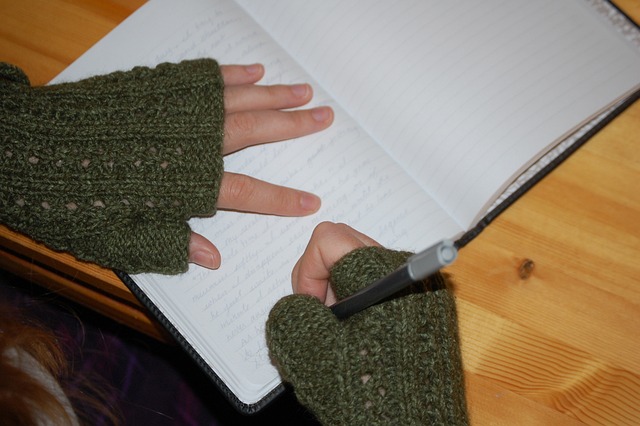Have you ever found yourself staring at a blank screen or an empty page, desperately struggling to put words down? Don’t worry, you’re not alone. Every writer, no matter how experienced, can find themselves trapped in the frustrating cycle of writer’s block. But fear not! In this article, we will explore some tried and tested techniques to help you overcome those creative blocks and get your ideas flowing once again. Whether you’re a seasoned writer or just starting out, these strategies will ignite your inspiration and get you back on track with your writing project. So, let’s dive in and discover how to conquer those writing obstacles!
Contents
- Tips for Overcoming Writer’s Block
- Understanding the Root Cause of Writer’s Block
- Unraveling the Source of Writer’s Block
- Exploring Different Perspectives on the Writing Topic
- Engaging in Free Writing and Brainstorming Exercises
- Seeking Inspiration from Other Writers and Artists
- Utilizing Writing Prompts and Creative Techniques
- Experimenting with Different Writing Formats and Mediums
- Building a Supportive Writing Routine and Environment
- Frequently Asked Questions
- To Wrap It Up
Tips for Overcoming Writer’s Block
As writers, we have all faced that dreaded feeling of staring at a blank page with no words flowing from our minds. Yes, we are acquainted with the notorious beast called writer’s block. But fear not, for here are some effective tips to conquer this hurdle and let your creativity flow:
- Take a break: Sometimes, stepping away from your work can do wonders. Engage in a different activity or simply relax to give your mind a chance to rejuvenate and recharge.
- Change your environment: A change of scenery can spark new ideas. Take your writing outdoors, find a cozy café, or even rearrange your writing space. Breaking the monotony can ignite your creative sparks.
- Freewrite: Give yourself the freedom to write without any constraints or expectations. Just let your thoughts flow onto paper without worrying about grammar or structure. This loosens up your mind and helps overcome the self-censorship that often leads to writer’s block.
Experiment with writing prompts: Explore creative writing prompts or exercises that challenge your imagination. These guided prompts can provide a starting point and stimulate fresh ideas that can then flourish into a full-fledged piece.
- Talk it out: Discussing your ideas with someone you trust can help overcome the mental block. Sometimes, a simple conversation can trigger thoughts and lead to a breakthrough in your writing.
- Read and explore: Dive into different genres, authors, or articles that interest you. Expand your knowledge and let other people’s words inspire your own. Often, reading can help you discover new perspectives and fuel your creativity.
Remember, writer’s block is temporary. Everyone experiences it at some point, so don’t let it discourage you. By employing these tips and finding what works best for you, you can overcome this creative hurdle and continue your writing journey with renewed enthusiasm.
Understanding the Root Cause of Writer’s Block
Unraveling the Source of Writer’s Block
Writer’s block, that formidable foe every writer faces at some point in their creative journey. It can feel like hitting a brick wall, leaving us staring at a blank page, grasping for the right words. But what exactly causes this frustrating phenomenon? Let’s delve into the depths of writer’s block to uncover its root causes.
1. Self-Doubt: Doubting our abilities and fearing judgment can paralyze our creative process. The constant nagging voice in our heads that whispers, “What if it’s not good enough?” or “Will anyone care about what I have to say?” contributes to the mental barriers of writer’s block.
2. Perfectionism: Often hailed as a valuable trait, perfectionism can actually hinder our writing flow. The relentless pursuit of flawlessness creates unrealistic expectations and puts immense pressure on our creativity. The fear of making mistakes or producing subpar work causes procrastination, resulting in the inability to put pen to paper.
Exploring Different Perspectives on the Writing Topic
When it comes to tackling a writing topic, there are often various perspectives and approaches that can be explored. Each writer brings their unique style and viewpoint, resulting in an intriguing blend of ideas and insights. By delving into different perspectives, not only do we gain a deeper understanding of the subject, but we also enrich our own writing capabilities. Let’s take a closer look at some of the diverse angles that can be examined when approaching a writing topic.
One approach to consider is analyzing the topic from a historical perspective. By researching and understanding the historical context surrounding the subject, writers can provide valuable insights and highlight its evolution over time. This can involve investigating past events, societal changes, or influential figures that have shaped the topic. Additionally, writers can explore the impact of historical events on the topic’s current relevance, offering a unique perspective that grounds their writing in a broader context.
- Cultural Lens: Examining the topic through a cultural lens enables writers to delve into the various customs, beliefs, and values that influence it. By analyzing how different cultures interpret and interact with the subject matter, writers can gain a more comprehensive understanding and bring cultural diversity into their writings.
- Scientific Analysis: Adopting a scientific perspective can allow writers to analyze the topic based on empirical evidence and rational reasoning. This approach may require conducting experiments, gathering data, or consulting expert opinions. By presenting their findings and interpretations, writers contribute to a body of knowledge and add credibility and objectivity to their work.
- Psychological Insight: Exploring the topic through a psychological lens involves examining human behavior, emotions, and cognitive processes related to the subject matter. This perspective allows writers to explore the motivations, biases, and reactions of individuals or groups when interacting with the topic, providing valuable insights into the human psyche.
Engaging in Free Writing and Brainstorming Exercises
can unleash your creativity and help you generate ideas effortlessly. These exercises are widely used in various fields, from writing and problem-solving to team collaboration and personal development. Here are a few ways you can incorporate these exercises into your routine to stimulate your imagination and overcome mental blocks:
1. *Free Writing*: Sit down with a pen and paper or open a blank document, and set a timer for a specific time, such as 10 minutes. Start writing continuously without worrying about grammar, punctuation, or coherence. Let your thoughts flow naturally and wander from topic to topic. By eliminating the pressure to create a perfect piece, you allow your mind to freely explore ideas, surfaces ones that you may have overlooked, and uncover unexpected connections. Remember, the key is to keep writing without judging or editing.
2. *Brainstorming*: Gather a group of individuals, whether in person or virtually, with a common goal or problem to solve. Begin by stating the objective clearly and encouraging participants to share any ideas that come to mind, no matter how absurd they may initially seem. The goal is to generate as many ideas as possible without criticizing or evaluating them. For a more structured approach, use visual aids, such as mind maps or sticky notes, to organize and expand on the ideas collectively. This technique not only helps you discover a diverse range of perspectives but also fosters a collaborative and innovative environment.
Seeking Inspiration from Other Writers and Artists
As writers and artists, it is natural for us to find inspiration from others in our respective fields. Engaging with the works of fellow creatives not only broadens our horizons but also fuels our own imagination and creativity. Here are a few ways you can seek inspiration from other writers and artists to take your own craft to new heights:
- Reading widely: Dive into various genres, authors, and styles to explore different artistic perspectives. This exposure can spark innovative ideas and help you develop a distinct voice in your own work.
- Attending exhibitions and performances: Immerse yourself in the visual arts, theater, or music, and allow these experiences to resonate with you. The emotions evoked by other art forms can inspire fresh insights and emotions in your own creations.
- Joining writing or art communities: Connect with like-minded individuals by joining workshops, critique groups, or online forums. Sharing ideas, receiving feedback, and learning from others’ experiences can be invaluable in your artistic journey.
Remember, seeking inspiration from others is not about imitating their work, but rather finding new ways to express your unique perspective. By immersing yourself in the creative world of fellow writers and artists, you open yourself up to endless possibilities and constant growth in your own craft.
Utilizing Writing Prompts and Creative Techniques
When it comes to writing, everyone experiences a creative block from time to time. Whether you’re a seasoned writer or just starting out, can be a game-changer. These tools not only help to spark inspiration but also foster imagination and enhance storytelling skills.
Writing Prompts: One of the most effective ways to overcome a writing slump is by using writing prompts. These are short phrases, ideas, or scenarios that act as a springboard to kickstart your creativity. They provide a starting point, challenge your imagination, and allow you to explore different genres and perspectives. There are countless sources online where you can find writing prompts, ranging from specific topics to open-ended ideas. By utilizing these prompts, you can discover new angles, characters, and plotlines that you may have never considered before.
Creative Techniques: In addition to writing prompts, there are various creative techniques that can take your writing to new heights. One such technique is freewriting, where you let your thoughts flow without worrying about grammar or punctuation. This stream-of-consciousness method helps to bypass any self-imposed restrictions and allows ideas to emerge organically. Another technique is brainstorming, which involves generating a multitude of ideas related to your topic. By jotting down anything that comes to mind, you can uncover unexpected connections and find innovative approaches to your writing. Additionally, experimenting with different narrative structures, such as flashbacks or multiple perspectives, can bring a fresh and engaging dynamic to your storytelling.
Experimenting with Different Writing Formats and Mediums
In the ever-evolving world of writing, where creativity knows no bounds, can open up a world of possibilities. By embracing alternative formats, writers can enhance their storytelling and engage readers in new and exciting ways. So, let’s dive into a few unique writing formats and mediums that can push the boundaries of traditional storytelling!
1. **Interactive Fiction:** Break away from the linear narrative and explore the realm of interactive fiction. With this format, you can let readers become active participants in your story, giving them the freedom to make choices that shape the plot’s outcome. Engage readers with branching paths, multiple endings, and interactive elements such as hyperlinks and buttons to create an immersive experience.
2. **Microblogging:** With the rise of social media, microblogging platforms have become powerful tools for writers to showcase their creativity. Platforms like Twitter and Tumblr offer an opportunity to craft concise and impactful pieces, allowing you to experiment with minimalistic storytelling and brevity. Condensing your ideas into bite-sized posts can challenge you to master concise writing while also catering to readers with short attention spans.
By exploring these and many other writing formats and mediums, writers can discover new avenues to express their ideas and captivate audiences in unconventional ways. Don’t be afraid to step outside your comfort zone and experiment with different formats – you never know what innovative masterpiece may be waiting to be unleashed!
Building a Supportive Writing Routine and Environment
Establishing a consistent writing routine and creating a supportive environment can greatly enhance your writing process and productivity. Here are some strategies to help you build a writing routine and environment that fosters creativity and encourages focus:
- Dedicate a specific time for writing: Set aside a designated time each day or week for writing. Whether it’s early morning, late at night, or during your lunch break, having a predictable writing schedule helps train your mind to be prepared and focused during those times.
- Create a dedicated writing space: Designate a specific area in your home or office that is reserved solely for writing. Whether it’s a cozy nook, a quiet corner, or a spacious desk, this space should be free from distractions and provide a comfortable environment where you can fully concentrate on your writing.
- Eliminate distractions: Minimize potential distractions by turning off your phone, closing unnecessary tabs on your computer, and notifying others around you that you need some uninterrupted writing time. Consider using productivity tools or browser extensions that temporarily block access to social media or other time-consuming websites.
By establishing a consistent routine, creating a dedicated space, and eliminating distractions, you can cultivate an environment that nurtures your writing process. Remember, everyone’s ideal routine and environment might be different, so experiment and find what works best for you. The key is to create a supportive atmosphere that enables you to tap into your creativity and focus on your writing goals.
Frequently Asked Questions
Q: What is one common problem that writers often face when working on a writing topic?
A: One common problem that writers often face is getting stuck or experiencing a block while working on a writing topic.
Q: Why do writers get stuck on a writing topic?
A: There are various reasons why writers might get stuck on a writing topic. It can be due to a lack of inspiration or ideas, feeling overwhelmed by the task at hand, or even feeling unsure about how to approach the topic.
Q: How can writers overcome these blocks?
A: Fortunately, there are effective strategies writers can employ to overcome these blocks. Some popular techniques include brainstorming, taking a break and coming back with fresh eyes, seeking feedback from others, or experimenting with different writing exercises.
Q: What role does research play in overcoming blocks?
A: Research can play a crucial role in overcoming writing blocks. It helps writers gain a deeper understanding of their topic, uncover new perspectives, and generate fresh ideas to break through their stuck moments. By engaging in in-depth research, writers can find inspiration and gain confidence to proceed with their writing.
Q: How can writers find inspiration for their writing topics?
A: Finding inspiration for writing topics can come from a variety of sources. Engaging in activities outside of writing, such as going for a walk, reading books, watching movies, or having conversations with others, can often spark ideas or open up new avenues of thought. It’s essential to keep an open mind and be receptive to new experiences for inspiration to strike.
Q: What should writers do when they feel overwhelmed by a writing topic?
A: When writers feel overwhelmed by a writing topic, it’s essential to break it down into smaller, manageable tasks. By creating an outline and setting specific goals, writers can tackle each section one at a time, thus reducing the feeling of being overwhelmed. Seeking support from fellow writers or mentors can also provide guidance and reassurance during challenging moments.
Q: What if writers are unsure about how to approach a writing topic?
A: If writers find themselves unsure about how to approach a writing topic, it can be helpful to do some initial research or seek guidance from others who may have expertise in the subject matter. This will provide writers with different perspectives and ideas, which can ultimately help them navigate their way through the writing process more effectively.
Q: Are there any specific writing exercises that can help writers overcome blocks?
A: Yes, writing exercises can be incredibly beneficial for writers who are feeling stuck. Some examples include free-writing, where writers jot down whatever comes to mind without judgment, or trying a different writing style or voice. Experimenting with different exercises can help writers break free from their mental blocks and explore new creative possibilities.
Q: What should writers keep in mind when trying to overcome blocks?
A: One important thing for writers to remember is to be patient with themselves. Overcoming blocks takes time and practice, and it’s crucial not to get too discouraged. Embracing the process and understanding that blocks are a common part of writing can help writers maintain a positive mindset and ultimately find their way back to their writing flow.
To Wrap It Up
In conclusion, when writers find themselves stuck on a writing topic, they should explore different techniques, take breaks, and seek inspiration from various sources to overcome these blocks. Embracing the process and persevering will ultimately lead to great writing.







